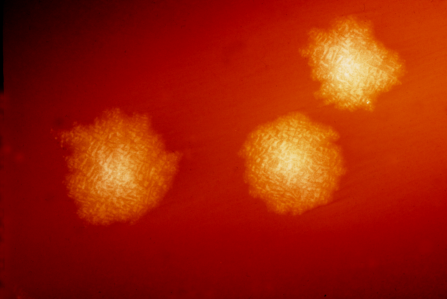Kids might be naturally immunized after C. difficile colonization in infancy

Exposure to C. difficile in infancy produces an immune response that might protect against this gastrointestinal infection later in childhood, according to a study published in Clinical Infectious Diseases journal. Researchers found that infants who were naturally exposed to C. difficile in the environment and became colonized with the bacteria had antibodies in their blood. Analyses using a state-of-the-art assay revealed that these antibodies neutralized toxins that cause C. difficile infection, preventing harmful effects to cells exposed to these toxins. This suggests that a natural immunization occurs, although future studies will need to determine if it would prevent illness years later after another C. difficile exposure.
"We found an immune response in infants colonized with C. difficile, which might be beneficial as they get older, although we are still studying the extent and duration of this natural immunization," says lead author Larry Kociolek, MD, MSCI, from Stanley Manne Children's Research Institute at Ann & Robert H. Lurie Children's Hospital of Chicago, who is an Assistant Professor in Pediatrics-Infectious Diseases at Northwestern University Feinberg School of Medicine and Associate Medical Director of Infection Prevention and Control at Lurie Children's. "We are optimistic because we know from previous studies that adults with anti-toxin antibodies have a lower risk for illness from C. difficile infection."
C. difficile is a frequent cause of community- and healthcare-associated infection in adults and children. While roughly half of all infants get exposed, they normally do not get sick from these bacteria. Older children and adults usually get diarrhea that needs to be treated by antibiotics. A more severe form of the infection may cause inflammation of the colon that requires surgery and could be fatal. Children tend to have milder symptoms than adults. The pediatric incidence of C. difficile infection peaks in the 1-to-4-year age group and during teenage years.
"Given our results, we suspect that young children who get sick from C. difficile were probably not exposed as infants and so did not develop immunity," says Dr. Kociolek. "In adolescents, immunity might be waning. If with more research we can show that this is true, then there might be a role for vaccinating susceptible children and teens against C. difficile."
Currently, vaccines against C. difficile toxins are in clinical trials for adults. Pediatric clinical trials will be needed before a vaccine is available for children and adolescents.
More information: Larry K Kociolek et al, Natural Clostridioides difficile toxin immunization in colonized infants, Clinical Infectious Diseases (2019). DOI: 10.1093/cid/ciz582














